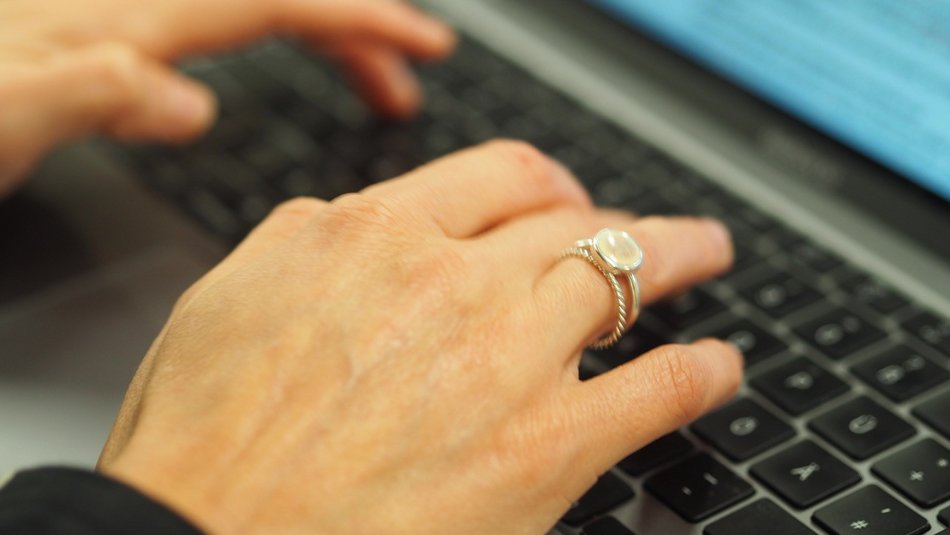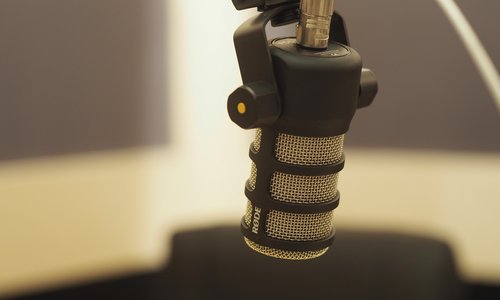
Sexual violence has many forms. It can occur in families, in daycare centres, schools, sports clubs or religious communities, as a ritualised form or in digital media, in partnerships, as a weapon of war, in the working environment, in night-life as well as in many other types of relationships. The types of assaults are at least as diverse. They range from physical to psychological violence. How the survivors ultimately deal with their experiences and what consequences they suffer afterwards differs from person to person. So there is only one thing that can be said in general terms at this point: sexual violence is - in whatever form - a drastic experience for those who survive it. This gives journalists a special responsibility to report sensitively - in order to protect the survivors. This means not only taking a sensitive approach during the interview, but also more intensive preparation and follow-ups than is normal with other types of research.
I. Preparation
1. Basic knowledge about sexual violence and its consequences is essential.
One of the first steps in reporting about sexual violence should be acquiring knowledge about the issue. What forms of sexual violence exist and how do they differ? Which psychological consequences do they hold for the survivors? How do these consequences appear in everyday life? If a journalist knows the answers, then this will be a good basis for meeting the special needs of the interviewees with appropriate sensitivity. Anyone who does a lot of work and research into the sexual violence issue should regard knowledge about it as being basic specialist knowledge - similar to how business journalists have to understand basic economics or how sports reporters have to deal with the rules of various sports. Of course, theory is rarely transferred into practice on a 1:1 basis. But a basic stock of knowledge will be a considerable help in sharpen one’s own sensitivity.
2. Who actually conducts the interview is not irrelevant.
Not every journalist is suitable for interviewing survivors of sexual violence - regardless of how good their professional knowledge of the issue is. If the perpetrator was male, then the survivor might well prefer to be interviewed by a woman. Other factors such as their own cultural affiliation or language skills are also very important here. It is a good idea to talk openly about this beforehand and to ask the interviewees whether they would feel more comfortable being interviewed by someone else.
"Anyone who speaks publicly about their personal story and the sexualised violence they have suffered should expect a sensitive approach as well as basic knowledge about the issue from the media representative. Clarification about these everyday crimes must not be at the expense of the survivors. This is why the survivors’ board considered it important to include their own experiences in these tips”.
3. The choice of words plays an important role.
Journalists should also think about communicating in advance in addition to having basic theoretical knowledge about the issue. The choice of words will not only play an important role in the final report - it will also play an important role in the contact established prior to the interview. For example, many survivors cannot accept being called "victims". Most prefer to use the term "survivor". The way in which the acts of violence are referred to should also be well considered. Writing or speaking about “sex” in conjunction with sexual violence will be considered problematic.
4. There is a difference between encouragement and stressful persistence.
As part of their work, journalists continually find themselves in the situation where they have to encourage their interviewees to actually participate in interviews. After all, it's not everyone who feels comfortable when appearing in public. But what is part of everyday work with harmless topics should be used very tactfully when dealing with survivors of sexual violence. Openly discussing an event like this can weigh heavily on them. Interview refusals should be accepted in this context.
5. Give the interviewee as much decision-making power as possible in advance.
Sexual violence can leave survivors traumatised because the acts of violence often result in a feeling of powerlessness and loss of control. This is why survivors should be able to decide in advance about the place and time of the interview, possible companions as well as content-related no-go questions and stop signs. It will also be helpful to go through these steps: What will the published interview ultimately look like? When will it be published? Which contributions can a survivor authorise? This will enable survivors to better evaluate what they are getting themselves into and gain confidence.
6. Maintain the balance between empathy and journalistic distancing.
Special awareness and empathy are needed when covering sexual violence. Nevertheless, journalists must remain true to their role. Those who get too close to their interviewees and then make promises about improving the situation might well raise hopes that cannot be fulfilled afterwards.
II. The interview
7. Be self-critical when choosing the questions that you will ask during the interview.
Some questions are especially interesting to journalists, but they can place a heavy emotional burden on survivors. Direct questions about the event itself might trigger flashbacks (i.e. re-experiencing the traumatic event) in traumatised survivors. Re-traumatisation cannot be ruled out either, which in turn can cause long-term stress. When asking "why", journalists should be aware that they might be implying that the survivors share responsibility for what happened. "How are you?" is another interview question that might seem natural, but it can have a stressful effect on survivors. Not just because it is very clichéd, but because it can also provoke emotions. This type of question will feel inappropriate to many survivors.
8. Listening attentively is one of the most important aspects.
Reactions by the counterpart are not negligible when survivors talk about their sexual violence experiences. Journalists should always listen very carefully. Deadlines or the pressure to write a particularly gripping story can lead to a lack of concentration or even to pouncing on specific emotional statements. Such conduct will violate the trust of the survivors. Also of great importance here is how journalists react to what is said. Being sceptical about statements that may seem illogical or overly emotional should be avoided.
9. Be confident during emotional moments.
Emotional moments can occur during an interview. It is important that journalists remain calm and do not act hastily. You can always offer your interviewees a break if this happens. Then you will have to wait and see what the survivor wants to do next. In this context it is especially important to bring the interviewee back to "here and now" at the end of the interview by steering the conversation towards questions that give the survivor a feeling of safety.
III. The follow-up
10. Good research and conscientious work are essential here.
A spelling mistake in the name, a number error in the age, an inaccurate job title and relationship errors - such mistakes are usually extremely annoying. However, such sensitive topics can be particularly hurtful to the interviewees because the mistakes can quickly be interpreted as a lack of appreciation. Some of the survivors might see the publication of their story as a chance to come-to-terms with what they have suffered, others might want to use the interview to create publicity or to make political demands. Errors will suggest irrelevance and interchangeability. This also applies to the choice of words: journalists must pay close attention to how they name certain aspects of the crime and how they position the survivors within the story (keyword: framing). It can be helpful at this point to provide the interviewees with the final text or at least some parts of it in advance of publication. Any factual errors or inappropriate framing can then be corrected before publication. The survivors should always be sent interviews or specific quotations for authorisation.
11. Be aware of how specific statements can be miss-interpreted.
Before publishing, it would be useful if you consider how the interviewees might find your final journalistic contribution. This does not mean that journalists should be completely uncritical and always act in the interests of their interviewees. However, you should always ensure that your article does not imply that the survivors are responsible for what happened (keyword: victim blaming).
12. Always check the statements for relevance.
Sometimes the survivors confide in journalists and describe private details that could be very unpleasant for them if they were published. Journalists should handle such information responsibly and, if in doubt, not use it if it is not essential to the story. Likewise, journalists should not exaggerate statements in order to attract more attention. Clickbaiting and survivor-sensitive interviewing are mutually exclusive.
Researching and interviewing survivors can also be stressful for journalists. If you feel that you need support and help you can always contact the nationwide Sexual Abuse Telephone Helpline (free-of-charge and anonymously) at: 0800 – 22 55 530. Other help and support services are available from: www.hilfe-portal-missbrauch.de
Last, but not least
There are no rigid rules for this type of reporting.
The previous twelve points can be used as support in preparing for such sensitive issues. However, they should never be seen as being a rigid set of rules. Ultimately, this type of conversational situation will very much depend on the interpersonal level, the current state of mind of the survivors, the setting and the time of the interview.
This is why it is important to understand that such interviews rarely proceed perfectly despite good preparation. Mistakes can and will always happen. But that’s not what matters here. What matters most here is that journalists are aware of their special responsibility through intensive preparation and that they enter the interview situation emphatically and sensitively.
This will ensure that such interviews will not only educate the public about sexual violence, but also be empowering for the survivors.
Marianna Deinyan is a freelance radio and online journalist from Cologne as well as being a radio presenter at WDR. Her topics include society, migration, (pop-)culture and constructive news. Her BA and MA studies have also enabled her to focus on trauma-sensitive reporting.
Survivor advocates from the UBSKM’s Survivors’ Board are available as contact partners for media enquiries.
Survivors’ Board press contact: presse@betroffenenrat-ubskm.de
More information about the Survivors’ Board can be found here
The "Quality of Media Reporting about Child Sexual Abuse" study undertaken by Döring & Walter, which was funded by the UBSKM Office, presented, for the first time ever, an insightful model of issue-specific criteria for top-quality child sexual abuse reporting that was substantiated by expert sources and theories.
Other sources:
https://www.coveringcrsv.org/resources/
Coté, William/Simpson, Roger (Hrsg.): Covering Violence. A Guide to Ethical Reporting About Victims and Trauma. New York 2006 (2. Auflage).
Ochberg, Frank: A Primer on Covering Victims. In: Nieman Reports, 1996 (Jg. 50, Nr. 3), S. 21 – 26.




